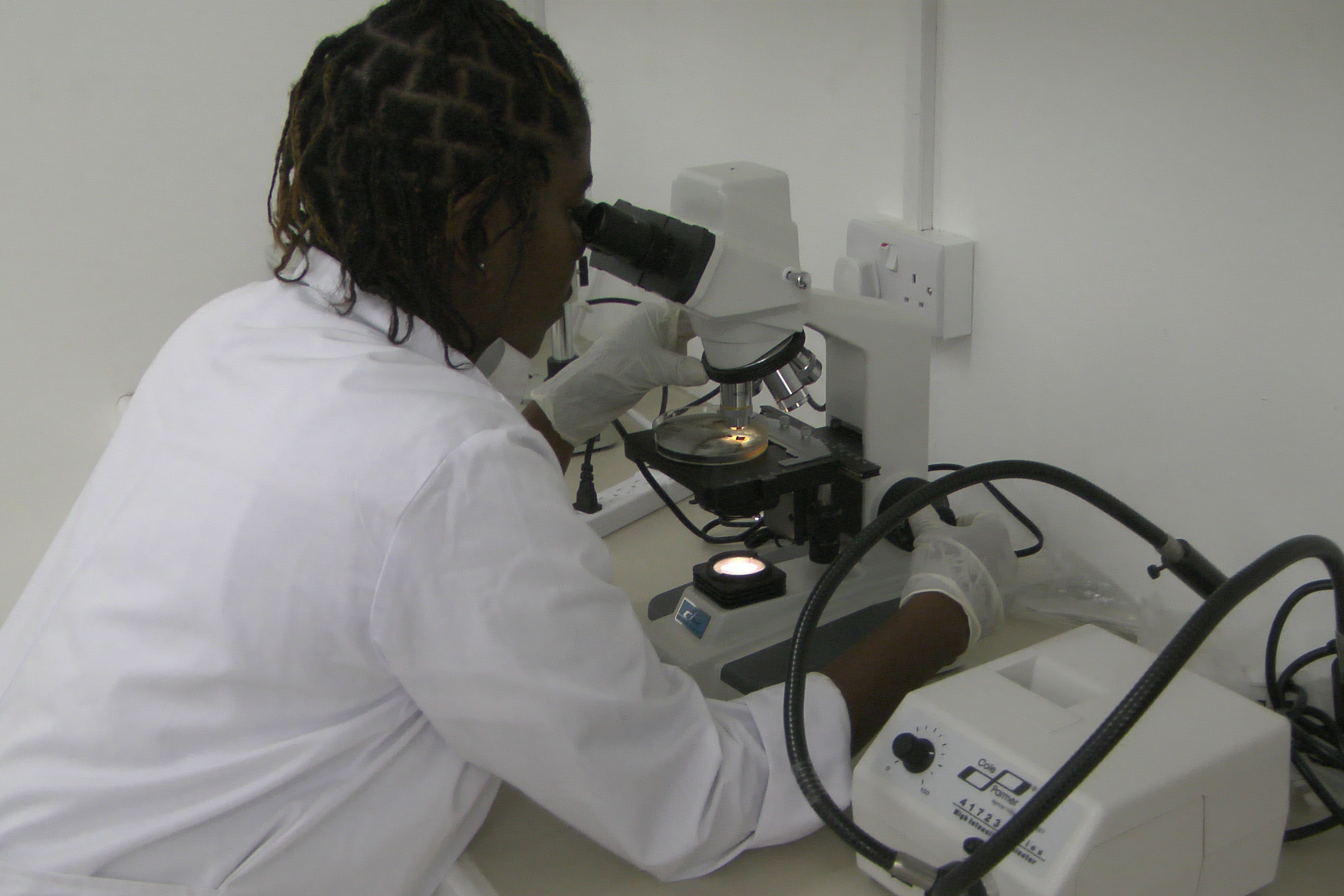Laboratories in the OECS receive new equipment
Testing for Plant and Animal Health and Analysis for Food Safety to be improved
Laboratories in OECS Member States are now better equipped to diagnose issues related to human, animal and plant health, and food safety, thus increasing their levels of efficacy and efficiency. On Wednesday March 15th 2017, the OECS Commission, through its Agriculture Unit, handed a total of XCD $309,416.94 worth of Laboratory Equipment to Agriculture Health and Food Safety (AHFS) testing Laboratories and Pest Risk Analysis Units of Anguilla, Antigua and Barbuda, Dominica, Grenada, St. Kitts/Nevis, Saint Lucia, and St. Vincent and the Grenadines.
The dockets for the equipment were handed to Lab Managers and Supervisors, and Ministry of Agriculture Officials of the beneficiary countries at a Ceremony at the Golden Palm Conference Centre in Rodney Bay, Saint Lucia. The new Laboratory Equipment was purchased under the 10th EDF Regional Integration and Trade of the OECS Region Project.
In his brief remarks, Programme Officer in the Agriculture Unit of the OECS Commission, George Alcee, thanked the European Union for responding to the request for Laboratory Equipment, and for its continued support under the Harmonisation and Enhancement of OECS Agriculture Health & Food Safety Systems. Alcee said the Programme, which started in 2012, has strengthened the health and food safety systems in the OECS.
The Pest Risk Analysis Support component of the Programme involves the provision of Training for all OECS Countries to undertake Science-based risk assessments, and provide quarantine policy advice, to protect Plant Health status, whilst facilitating Trade. It also involves the procurement of equipment to establish Pilot Labs in St. Vincent and the Grenadines, Dominica, and Saint Lucia – to safeguard against the entry of exotic pests, consistent with the International Plant Protection Convention. The OECS Commission has trained over 30 quarantine inspectors, through the annual UWI Plant Quarantine Training Programme. The support to improving the quality infrastructure and testing capacity of Labs in the OECS was manifested in Training, with an eventual goal of certification or accreditation to ISO/IEC17025, and the provision of laboratory equipment, based on the testing needs of beneficiary countries. A technician in each Member State was trained in Lab Diagnosis for Avian Influenza (Bird Flu) and New Castle disease. The Training took place in Chile.
Alcee reiterated that the equipment is to assist the Labs in their mandate to protect human, animal and plant health in their respective countries, and the OECS Region as a whole. He appealed to the Lab Managers and Technicians to make the best use of the equipment, “as we continue to work towards safeguarding the OECS Economic Union from pests and disease.” According to Alcee, achieving this goal is key to realising the free circulation of goods within the Economic Union.
OECS Director General, Dr. Didacus Jules, described the occasion as “a milestone in agricultural health and food safety in the region” as it relates to strengthening of the processes of compliance to international health and food safety standards and the establishment of a framework for the development of ‘Centres of Excellence’ and access to their services, by Member States. Dr. Jules stressed that “initiatives such as these in which we are building collaboration among Member States, strengthening capacity, and providing tools for more scientific ways of working – exemplify the work of the OECS Commission.”
He told all present: “If you don’t do your work effectively, if you’re not provided with the right tools and equipment, if we’re not able to hold the line against dangers and diseases, our entire Free Circulation of Goods Regime runs into peril.”
Dr. Jules notes that international trade in high-value food products continues to expand, fuelled by changing customer tastes and advances in production, transportation, and other supply chain technologies. He says this expansion of trade in food products has given rise to concerns about food safety, with major concerns about the presence of chemical residues and various contaminants in food, as well as the possibility of the spread of pests, and the threat of invasive species.
According to Dr. Jules, the expanding Trade and Tourism Industry in the OECS and the wider region, has long been recognized as an avenue for the entry of invasive pests and diseases. Citing actual examples, he said the destruction of the coconut industry in St. Kitts/Nevis and Antigua by Lethal Yellowing, was as a direct result of the importation of palms from Florida, for landscaping in the tourism industry in those countries.
Putting the issue into context, the OECS Director General said: “We have recognized the need for the region to have the capacity and capability to rapidly detect and accurately diagnose agriculture, health and food safety issues, to ensure safe and sustainable trade and consumption of agricultural commodities.”
“The capacity to meet sanitary and phytosanitary standards to address the many issues of agriculture, health and food safety as a region, lies in strengthening the institutional and managerial capabilities of our agencies, and in deepening functional cooperation between them.”
Dr. Jules says regrettably, agricultural health and safety issues have been primarily promoted as a Trade-related obligation imposed by the World Trade Organisation (WTO) in a very stringent manner. In light of this, he believes that as a region, “we must give equal prominence to product quality improvements and health benefits to our consuming public.”
The Handing-Over of Equipment coincided with a three day Meeting of Agriculture Health & Food Safety Laboratory, Sanitary and Phytosanitary Quarantine Managers of the OECS. Representatives of Development Partners in attendance included Mrs. Shivanna Mahabir of LEESquared Consultants and Mr. Stephen Farquharson of CROSQ.




